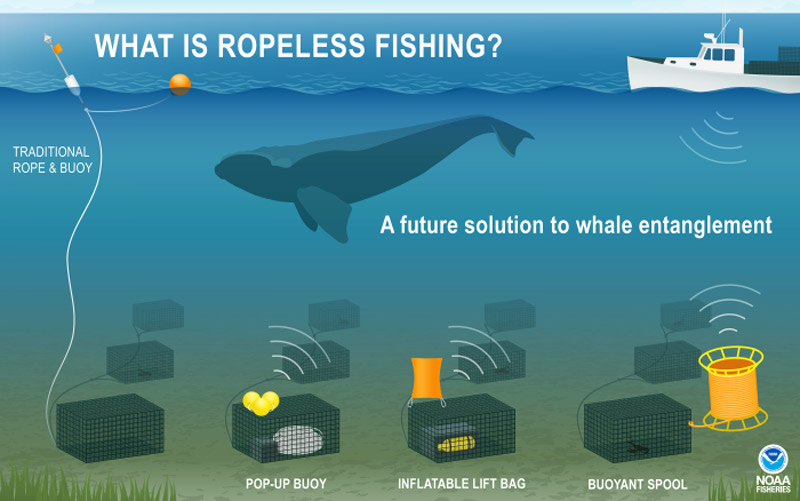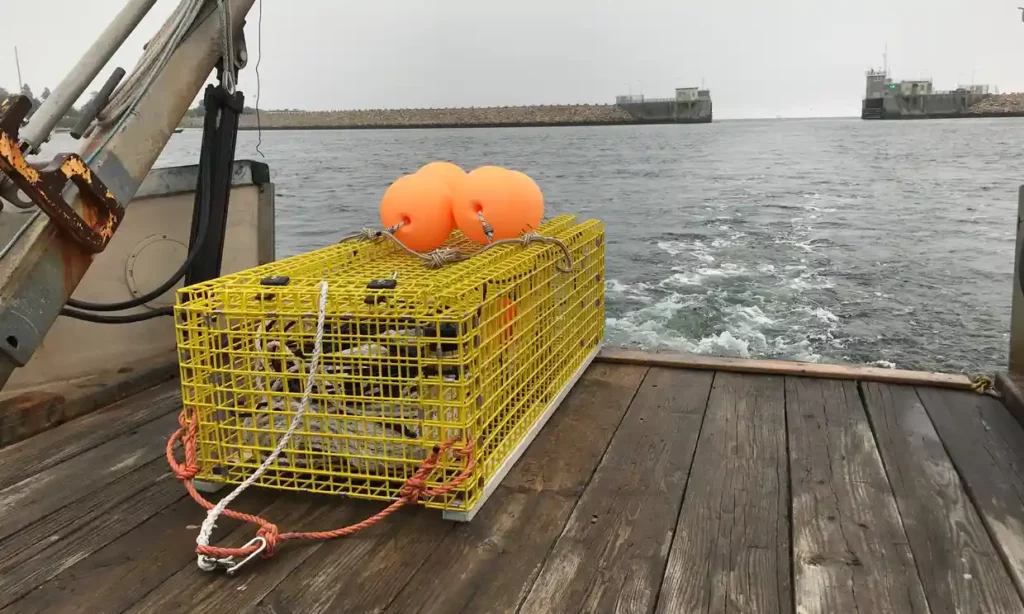

Working alongside the Scottish Creel Fishermen’s Federation (SCFF) and Herriot Watt University, the Company is helping to support the development of ropeless fishing gear, helping to make fishing practices safer for wildlife and ultimately save the lives of sharks, wales and dolphins.
Entanglement is the biggest identified cause of death due to human activity for minke and humpback whales, and the extent of the issue has not been well understood. Whales and other marine animals can become entangled in fishing equipment, including the ropes linking creels (also known as pots), which are set around Scotland’s coasts to catch prawns, crabs and lobsters. There is now a legal obligation in Scotland for fishers to report entanglements.
In 2021, a study involving the Scottish Entanglement Alliance (SEA), the Scottish Government, and academics, estimated that in Scottish waters, approximately six humpback whales and 30 minke whales become entangled in creel fishing ropes each year. Other marine species such as basking sharks and dolphins were also recorded to have been entangled.

‘Ropeless gear’ technologies do exist to mitigate the issue of entanglements. Developed in the US, they work by using an acoustic release device to allow the rope that would usually be in the water column to be stored at depth and then released on demand. However, the current technology is too expensive or cumbersome for use in the UK fishing sector.
In 2022, the Scottish Creel Fishermen’s Federation (SCFF) approached the FCFCT’s Fishing Industry Science Partnership Network for their help to devise ‘ropeless’ technology that would be fit for purpose. The FISP Network connected the SCFF and SEA with Heriot Watt University. Following a collaborative process, the stakeholders designed and developed an acoustic release device and associated gear marking technology that will be trialled by the fishing industry this year.
Yvan Petillot, project lead and professor in robotics at Heriot-Watt University, has previously developed acoustic communications suitable for underwater use and has developed solutions for underwater sensing using connected acoustic modems. His team of students will utilise underwater remote sensing technology to develop and test a new generation of low-cost systems, linked to a state-of-the-art software app to provide the capabilities required by the creel industry in Scotland. They will integrate modems (which come with low power electronics) with a latch system attached to the creel to release on demand. Alongside this, there will be development of a top station with a Bluetooth link to a mobile phone app to release the rope. Finally, the project will develop an electronic marking system in place of where a buoy would mark gear.

The Scottish inshore fishing industry makes a significant contribution to the national economy and forms the backbone of many small coastal communities. Entanglements have conservation, welfare and economic consequences, costing the industry in gear replacement. This project aims to make an affordable technology, predicting £50 a unit when produced in bulk, to ensure a workable mitigation strategy for reducing entanglements.
Yvan Petillot, project lead and professor in robotics at Heriot-Watt University, has previously developed acoustic communications suitable for underwater use and has developed solutions for underwater sensing using connected acoustic modems. His team of students will utilise underwater remote sensing technology to develop and test a new generation of low-cost systems, linked to a state-of-the-art software app to provide the capabilities required by the creel industry in Scotland. They will integrate modems (which come with low power electronics) with a latch system attached to the creel to release on demand. Alongside this, there will be development of a top station with a Bluetooth link to a mobile phone app to release the rope. Finally, the project will develop an electronic marking system in place of where a buoy would mark gear.
The Scottish inshore fishing industry makes a significant contribution to the national economy and forms the backbone of many small coastal communities. Entanglements have conservation, welfare and economic consequences, costing the industry in gear replacement. This project aims to make an affordable technology, predicting £50 a unit when produced in bulk, to ensure a workable mitigation strategy for reducing entanglements.